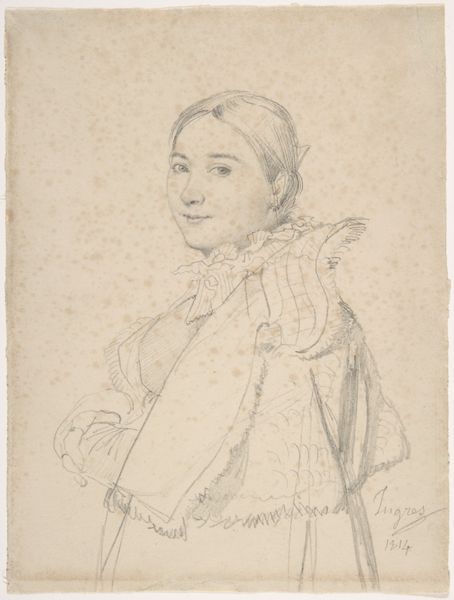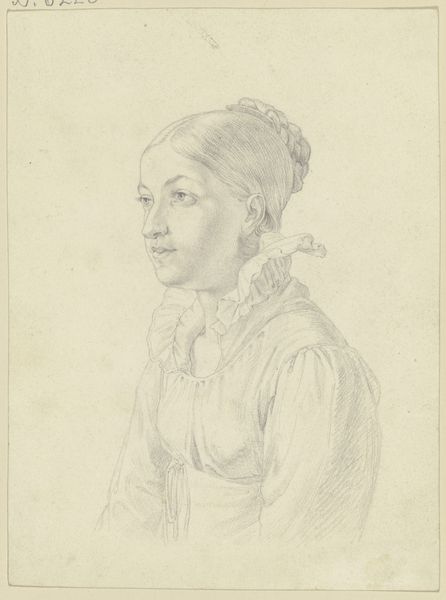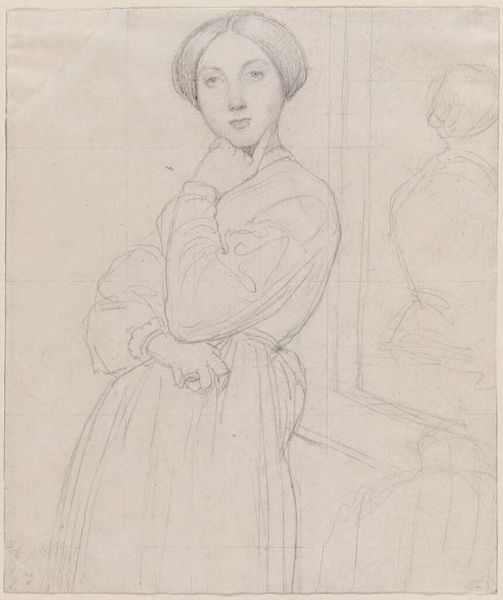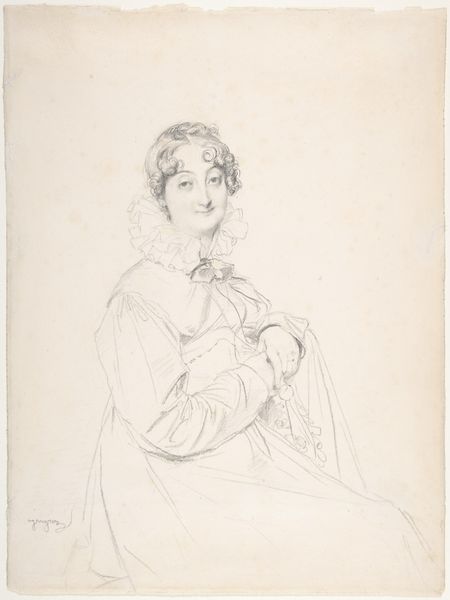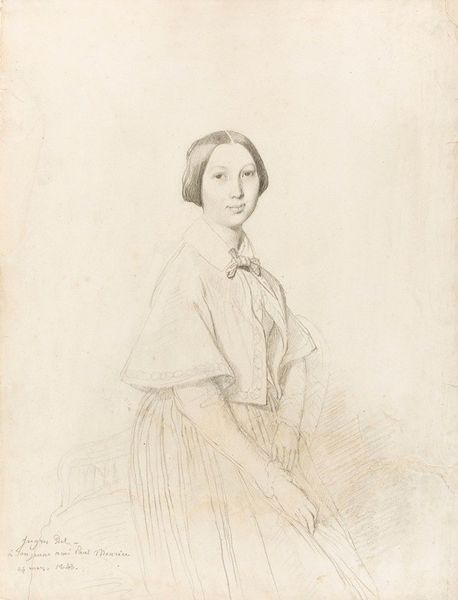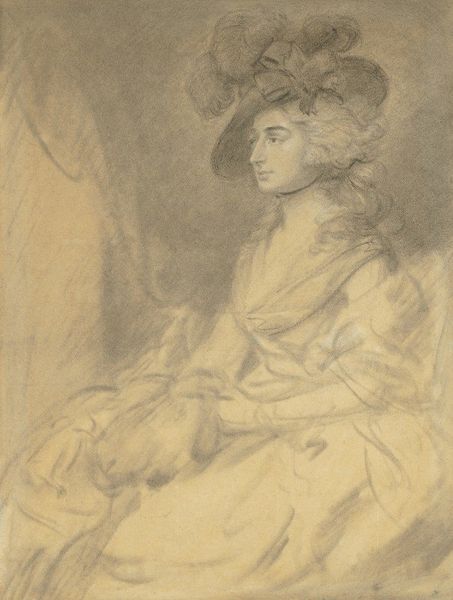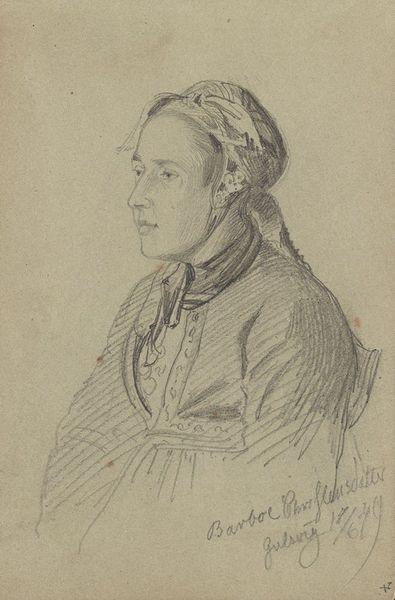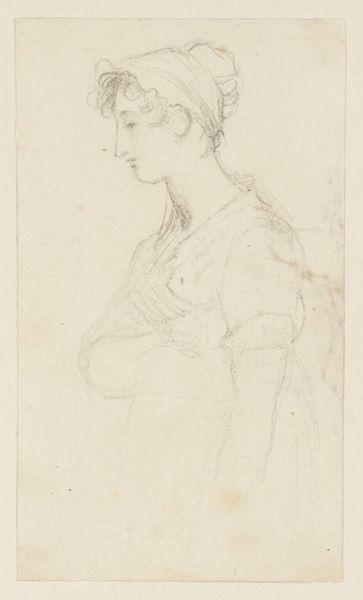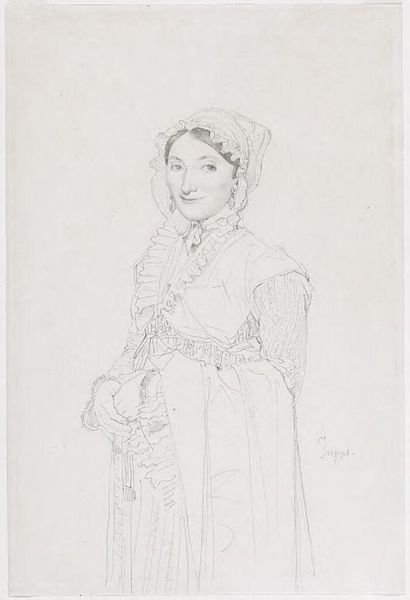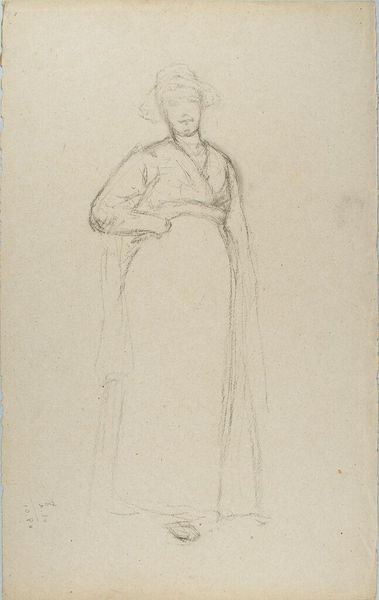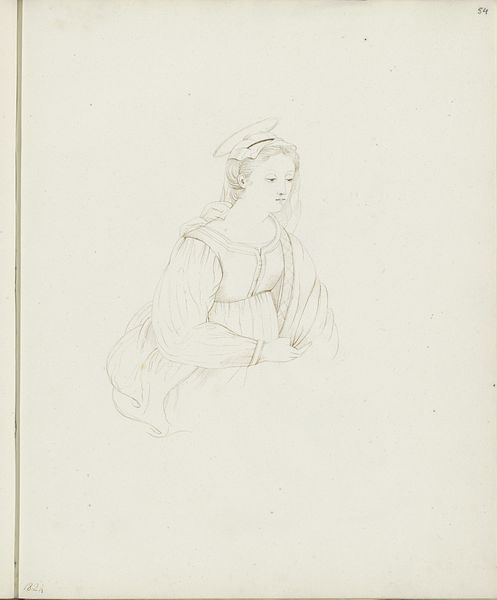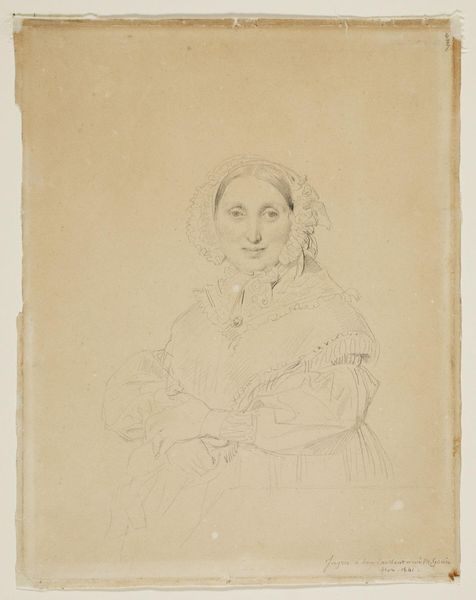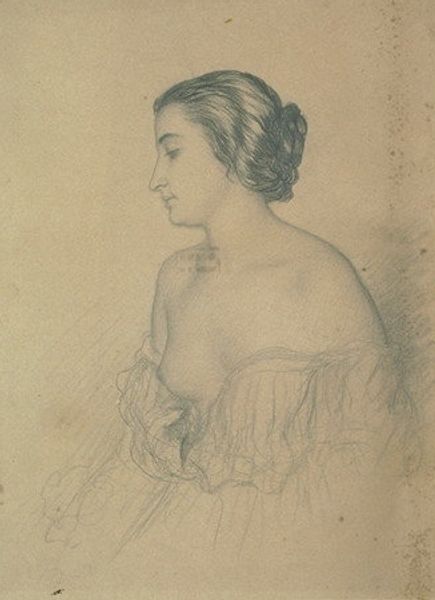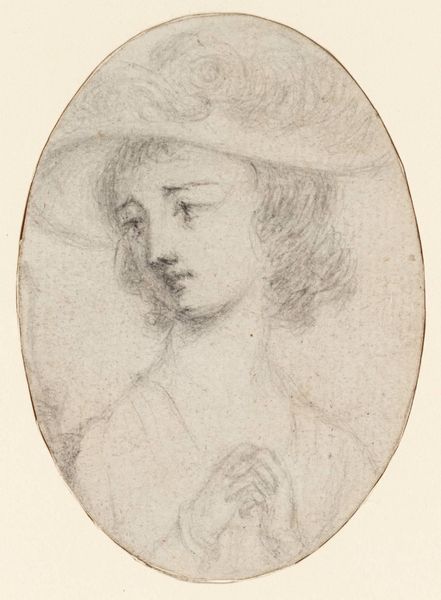
drawing, pencil
#
portrait
#
drawing
#
neoclacissism
#
self-portrait
#
pencil drawing
#
pencil
#
portrait drawing
#
academic-art
Copyright: Public Domain: Artvee
Jean Auguste Dominique Ingres made this portrait of his wife, née Madeleine Chapelle, in pencil on paper. It encapsulates the visual codes that defined femininity in 19th-century France. Drawn in Rome, this sketch offers a glimpse into the artist's personal life but it also speaks to the institutional forces that shaped artistic production at the time. As a leading figure in the French Academy, Ingres championed Neoclassicism, a style associated with order, reason, and tradition. His portraits, like this one, often depicted women from the upper classes. The emphasis on delicate features, refined clothing, and a composed demeanor reflects the social expectations placed on women of that era. Ingres’ art was deeply intertwined with the cultural and political climate of post-revolutionary France, in which the role of women was heavily scrutinized and regulated. To truly understand this drawing, scholars consult letters, biographies, and exhibition reviews. These sources shed light on Ingres’ artistic choices and the broader social context in which he operated.
Comments
No comments
Be the first to comment and join the conversation on the ultimate creative platform.
